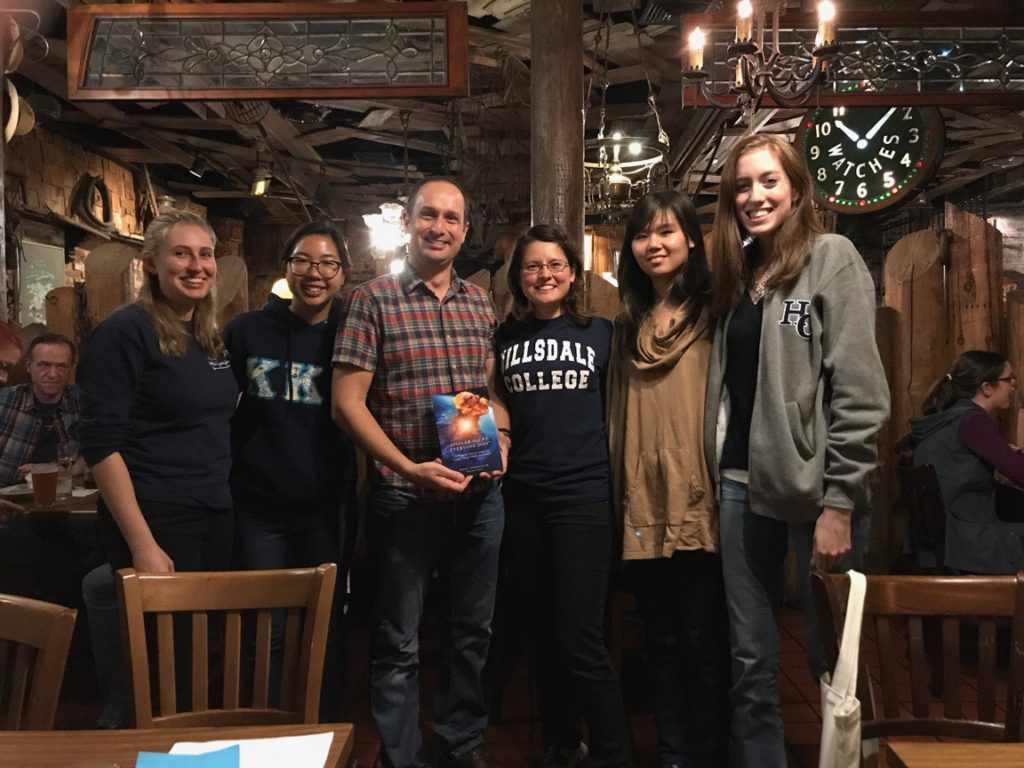
Christine Ausherman | Courtesy
What would happen if the Earth stopped spinning or lost all its water at once? David Consiglio, an Oakland Community College professor and high school science teacher, may have the answer.
Consiglio gave a talk about these and other questions addressed in his book “Spoiler Alert: Everyone Dies: The Lighter Side of Global Annihilation” Sept. 19 in Detroit, Michigan. Five members of Hillsdale College’s chapter of the American Chemical Society attended the talk, which was sponsored by the national ACS.
Consiglio’s book revolves around addressing imaginary scenarios based on real principles of physics and chemistry. For example, one question Consiglio answered was whether the Earth’s population had enough combined strength to pull the moon toward the Earth using an unbreakable rope.
Consiglio first began answering these hypothetical questions on a blogging website called Quora. After answering a few questions online, Consiglio made connections across the world with people who either agreed or disagreed with his answers to quixotic questions, which explain whimsical scenarios using real scientific principles.
“They’re all very interesting,” said senior Christine Ausherman, secretary of Hillsdale’s ACS chapter. “They’re all strange and weird, but he takes the time to describe the physics and to a certain extent, the chemistry behind these phenomena.”
Hillsdale ACS president senior Andrea Lee said she felt the event would be a great way to meet other ACS members.
“We’ve never interacted with other ACS chapters in the state,” Lee said. “As one of the goals for this year, I wanted to try and get more involved with other chapters.”
The talk was one of a series of chemistry-related events the national ACS sponsors each month. “When I heard about this, I was really excited because I feel like a lot of the scientific field is based on community, hearing what other people are doing, meeting other students, and interacting with people,” freshman Gabrielle Grayson, who attended the talk, said. “It sounded really fun and interesting.”
Ausherman said the event was a good opportunity to meet other ACS members, although Consiglio’s talk contained less chemistry-specific topics.
“Next month’s talk is very much a chemistry research topic involving carbohydrates and cancer research,” Ausherman said. “So I’m looking forward to that talk if we do end up going again.”

